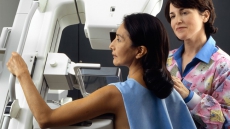Have you noticed that your fingers are turning 'Pinky’ lately as you are busy chatting and texting on smartphone? If yes then you are not alone.
“Smartphone Pinky” - a perceived bend in the little finger on one's dominant hand - may occur is people who use the device for at least six hours a day, the Sydney Morning Herald reported.
“Although the chances of a person permanently bending their finger through smartphone use are 'pretty slim', it would take a minimum of around six hours a day of an applied force on soft tissue to evoke change," Dave Parsons, clinical fellow at Curtin University in Australia, was quoted as saying.
The bend is purported to have been caused by the weight of holding a smartphone with one's smallest finger at its base (while the other fingers support the phone along its longer side).
According to Parsons, smartphone-related injuries are much more likely to occur at the other end of your hand.
"With the size of the face of phones increasing, the thumbs now have to move a greater distance when using the phone," he noted.
The easiest way to prevent injury when using a smartphone is to avoid long, sustained periods of use.
Oh. No. Is anyone else getting #smartphonepinky ?!? #itshappening #ohcrap #firstworldproblems pic.twitter.com/GCZfsauXaU
— Faith James (@faith_james1) November 24, 2015
A recent report in the prestigious medical journal, The Lancet, said that "WhatsAppitis" is a credible disease, after a doctor in Spain diagnosed a 34-year-old female patient with bilateral wrist pain induced by excessive use of 'WhatsApp'.
"She held her mobile phone for at least six hours and continuously used both thumbs to send messages to relatives and friends," Spanish physician Ines M Fernandez-Guerrero wrote in the journal.
The next morning, that woman woke up with aching wrists.
"The diagnosis for the bilateral wrist pain was 'WhatsAppitis'," Fernandez-Guerrero added.
He treated the woman with non-steroidal, anti-inflammatory drugs and asked her to completely avoid using the cell phone to send messages.





